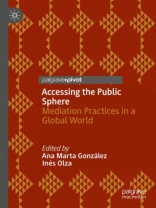This edited volume focuses on the (un)equal access to the public space granted to the various groups that make up hybrid and multicultural societies: i.e. majority vs minority groups, immigrants vs non-immigrants, and so forth. With ‘access to public space’ the authors refer not only to participation through discursive practices in the public arena (e.g. political, social and institutional debates) but also to a full operationalization of the knowledge, habits and opportunities attached to true citizenship. Furthermore, in contexts of inequality and sociocultural conflict, the role of mediators has always been underscored as third-party figures (in)formally acknowledged and authorized–by participants in the interaction and/or external bodies–to set the ground for mutual understanding and foster balanced communication. Such mediation can range from interpreting in legal and medical encounters to dispute-resolution practices in situations of sociocultural clash among groups or individuals. Therefore, as is shown by the contributions in this volume, (intercultural) mediators are key agents in facilitating integration and providing disadvantaged groups with effective tools to gain access to the public sphere.
Tabela de Conteúdo
1. Accessing the Public Sphere: An Introduction to the Volume.- 2. Broken Understanding: Corrupted Participation in Emerging Public Spaces.- 3. Transcultural Communication During a Misinfodemic: How Antiquated Science Communication Models and Information Deserts Enhance Vulnerability to Beliefs in False Health and Science Information.- 4. Sacred Paths to Magnanimity in a Polarized World.- 5. Toward a New Set of Practices in Intercultural Communication.- 6. Ethical Challenges for Intercultural Mediators in Preventing and Remedying Potential Unequal Access to the Public Space.- 7. The Effect of Empathic Mediation in Conflict Resolution.
Sobre o autor
Ana Marta González is Full Professor of Philosophy at the University of Navarra, Spain, where she teaches Moral Philosophy and Social theory.
Inés Olza is Senior Research Fellow in General Linguistics at the Institute for Culture and Society (ICS) of the University of Navarra, Spain, where she directs the Multimodal Pragmatics Lab.












